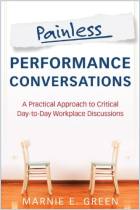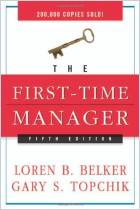
Read or listen offline
Recommendation
If you’re about to become a manager for the first time and don’t have a clue about how to get your direct reports to do what you want them to do, use this book as a step-by-step primer. It explains what to say, when to say it and how to follow up. It teaches you why meeting and connecting with employees individually is so important if you want to keep them accountable and get results. Author Brian Cole Miller’s advice will help you develop your coaching skills. It will also save you a lot of headaches if you’re struggling with problem employees. Miller shows you how to work with difficult employees in a way that is supportive, yet puts the ownership of results squarely on the employee’s shoulders - where it belongs. If you’ve just promoted someone to manager, or if you are a new manager, getAbstract suggests that you make this book a part of your on-the-job training and development curriculum.
Take-Aways
About the Author
Brian Cole Miller owns a management training company and is the author of Quick Team-Building Activities for Busy Managers.


















Comment on this summary or Start Discussion
Let them know what is needed in their workplace. It seems obvious! And yet, in conversations with me, ordinary employees have said many times that they have no idea of how their immediate superiors feel about their work-it just does not say anything about it. Such managers act on obsolete standards, according to which it was considered not necessary to openly praise the employee. In fact, everything is exactly the opposite, and this attitude towards people is fraught with the departure of the best of them.